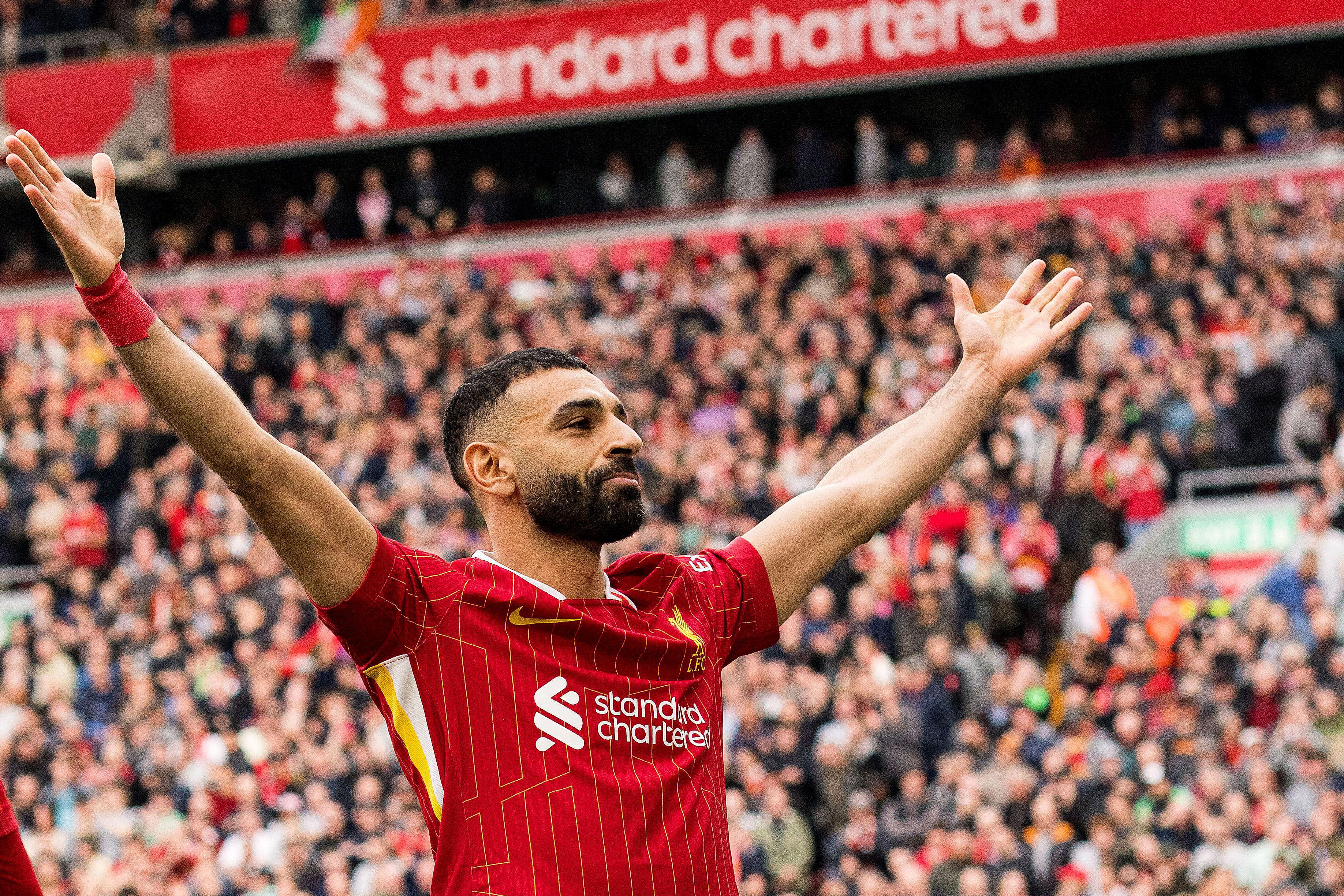6 expert tips on how to win the World Cup in Football Manager 2017
Can you win the ultimate prize in world football? Fraser Gilbert tells you how

International management is an often-overlooked aspect of the Football Manager experience. It’s a less intimate, day-to-day role than club football allows, but it’s also the most potentially rewarding. We’ve all dreamed of hoisting the World Cup above our heads at some time or another, and FM offers the ability to make it a (virtual) reality.
Of course, winning the World Cup isn’t a walk in the park. It’s one of the hardest in-game tasks to achieve, particularly if you’re managing a lower-ranked nation. We believe in you, though, and just a few handy tips should help you on your way to legendary status. Let’s take a look...
1. Play to your strengths
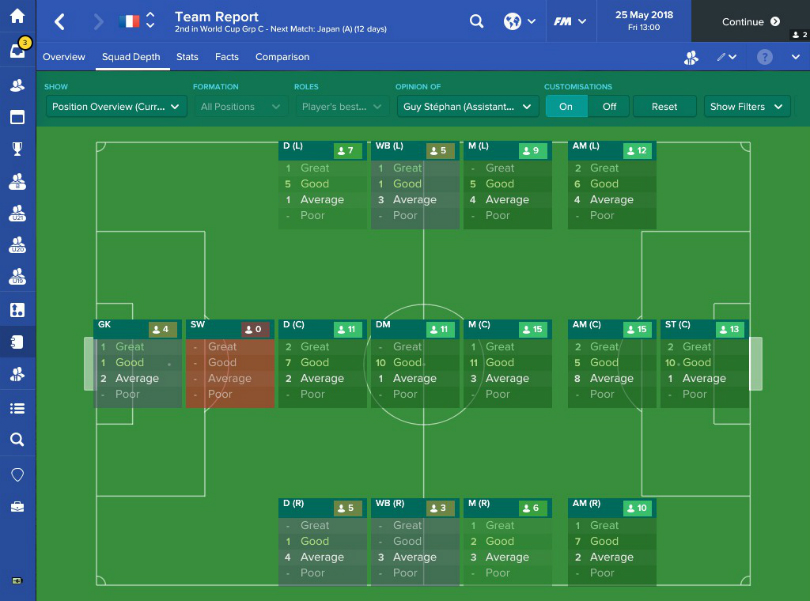
In many ways, international management is a more simplistic undertaking than club football. Your tactics need to adapt to your players’ strengths - after all, you can’t just buy new stars. Get to know your best players, weakest areas and optimum style of play. The quality of teams in international competition can vary dramatically, so be sure to take this into consideration.
If you’ve found the ideal tactic, stick to it. Having a Plan B is crucial, but international management doesn’t rely on tactical variation as heavily as club football. You’ll likely want to adapt a little based on the level of opposition, but making wholesale changes before a World Cup is unlikely to breed success.
2. Utilise scouting
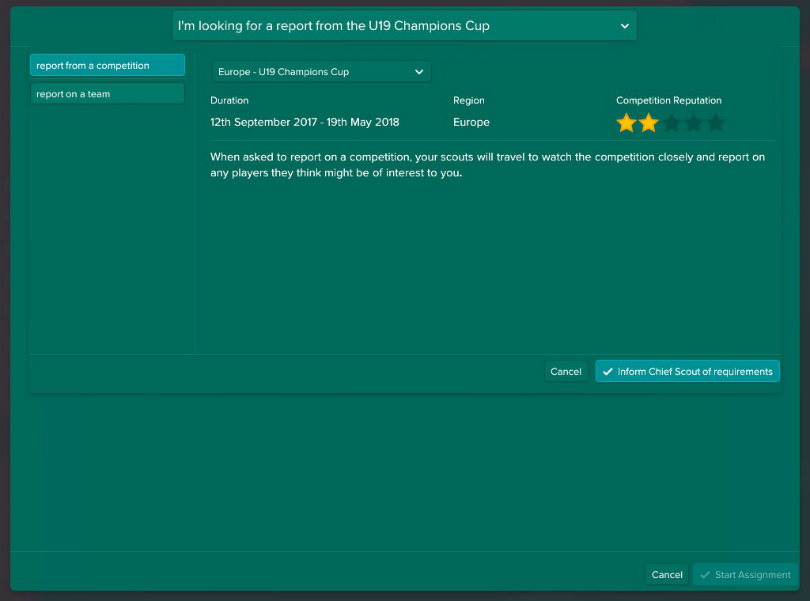
While scouting is an important element of club management, it’s a near-necessity at international level. Without exposure to the week-by-week happenings of a domestic league system, you might be missing out on promising young stars who could revitalise your side. Similarly, you might fail to gather info on a lethal striker that you’re soon to face in an upcoming fixture.
Get FourFourTwo Newsletter
The best features, fun and footballing quizzes, straight to your inbox every week.
Your assistant manager can scout entire competitions to help you remain knowledgeable in this area. He can also provide a report on future opposition, which is something you should always take heed of. And, if desired, you can attend games yourself to run the rule over certain players.
3. Form and morale
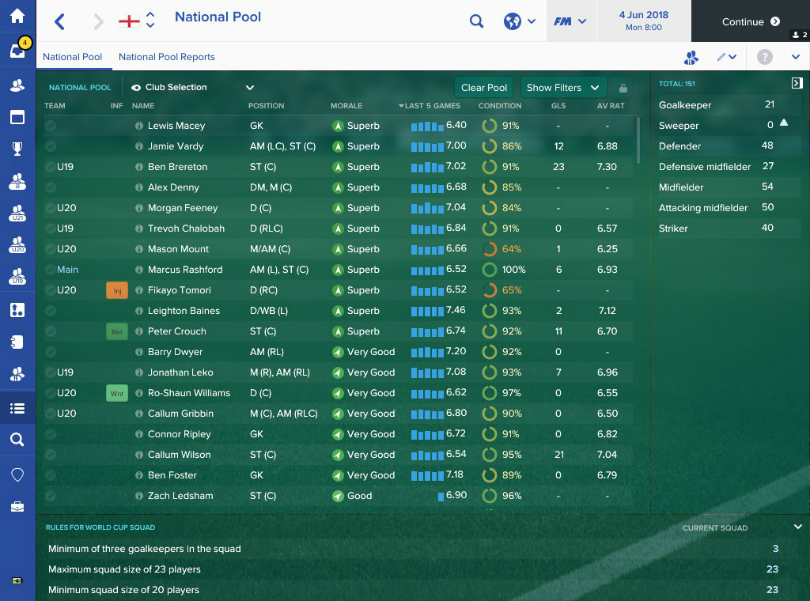
There are multiple variables to consider when selecting a side for the World Cup. If you want to achieve success, paying attention to more than just attributes and your tactical setup is required come game day.
It’s a good idea to see who’s been on form for their club sides recently. A quality striker who’s been setting his league alight might be worth a start, particularly if he’s packing high morale too. The mental game is huge, and a boost in morale can make a massive difference to your team’s performance. Huge changes are a no-no, but the odd hot streak might just give you the edge.
4. Pre-tournament friendlies
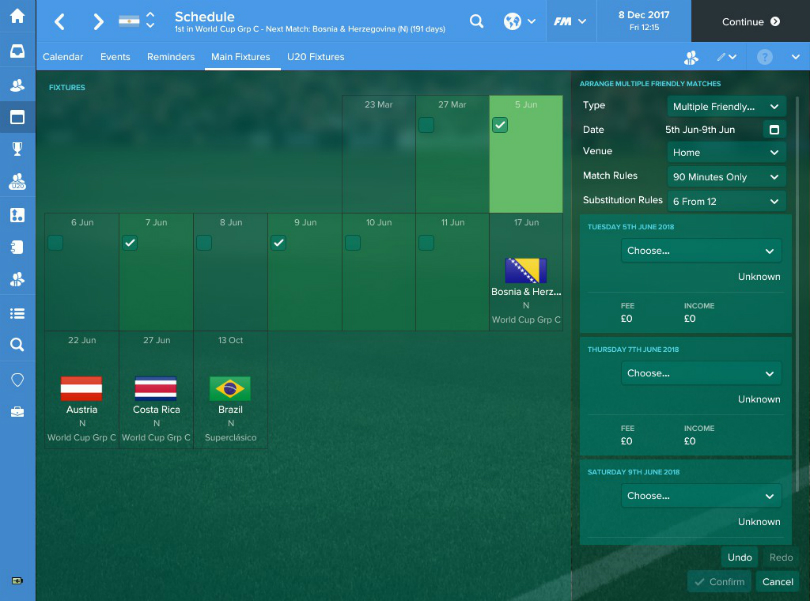
The biggest challenge within international management is undoubtedly the lack of time you get with your squad. Injuries and huge gaps between games often lead to a dysfunctional setup that’s anything but ideal ahead of a big tournament.
Luckily, the World Cup provides a two-week pre-tournament window to get acquainted with your side. Arranging competitive-yet-winnable friendlies during this period can offer a significant boost to your team’s confidence and fitness levels. That said, the latter can have the opposite effect if you arrange games too close to your first group match.
5. Youth sides and B teams
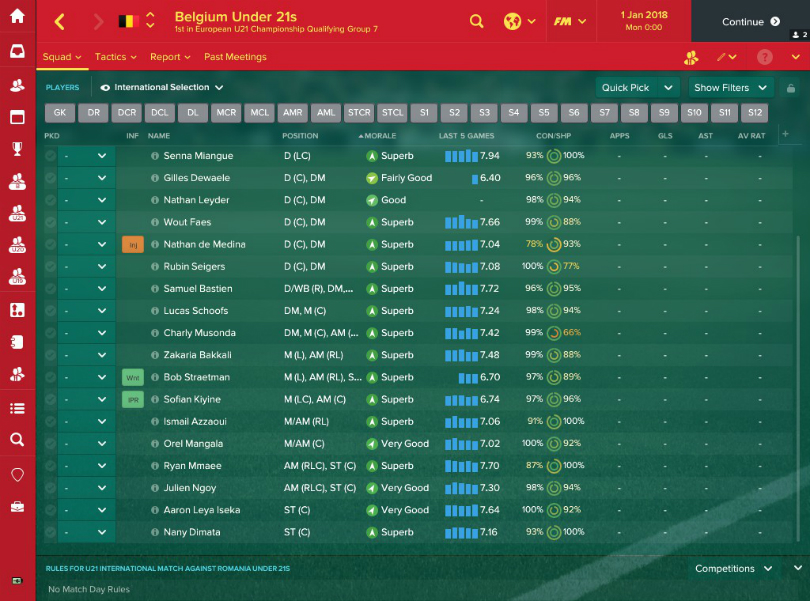
When you take the reins of a national setup, you’re given the ability to manage its youth and B-team squads if you desire. Your success as national team manager is dependent on how well you immerse yourself in your country’s footballing talent pool, so this is another area you ideally don’t want to overlook.
It’s self-explanatory really. Managing youth sides allows you to cast a watchful eye over future stars of your country, while B-team fixtures are perfect ways to give national team fringe players a run-out. Your National Pool is there to be used - so it’s worth getting to know every player at your disposal.
6. Ride your luck
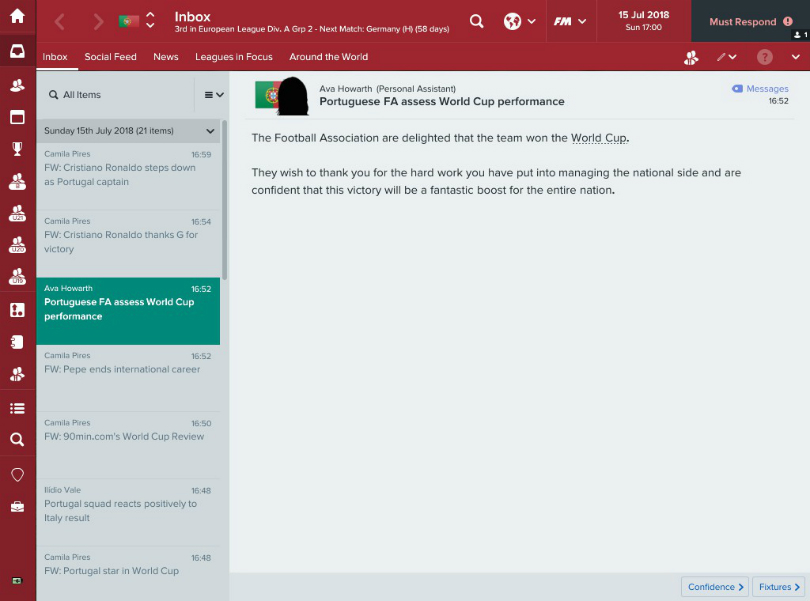
It’s World Cup time. It’s all going smoothly until your star midfielder picks up a debilitating injury in a friendly. Then, your prolific striker suffers a broken foot in the first group game. Suddenly, all of that pre-tournament preparation goes out the window as you’re forced to deal with an ever-worsening scenario.
You can’t guarantee World Cup success. Team selection and tactics are crucial, but luck remains a key factor. We’ve seen it before - penalty shootout losses, wrongful red cards and game-changing injuries. It’s what makes the World Cup so unpredictable. Yes, effective preparation is crucial, but the good fortunes of Lady Luck are just as important. Just ask England.
More Football Manager 2017...
- The 11 best non-league signings to make in Football Manager 2017
- 6 key ways to improve your finances in Football Manager 2017
- 4 essential tips to get your squad fit and firing
- 7 ways to get the most out of Football Manager 2017 when you're short on time
- 8 signs you're addicted to Football Manager
- 10 of the best Football Manager 2017 release clauses you can't miss
- The 18 best coaches to snap up in Football Manager 2017
- 5 things you need to stop doing right now to win more matches on Football Manager 2017
- Explained: 7 ways to make sure you don’t miss Football Manager 2017's coveted wonderkids
- 10 of the best Football Manager 2017 youngsters you can grab for under £1m
- 8 brilliant Football Manager 2017 free transfers under the age of 23
- Quiz! What kind of Football Manager manager are you?
- Who are Football Manager 2017's 84 best wonderkids and why are they brilliant?
- What’s it like to scout for Football Manager? A Sports Interactive expert tells FFT
- 17 teams we can’t wait to be on Football Manager 2017
- Who to start with on Football Manager 2017? EVERY English league team's starting transfer and wage budget
- Football Manager 2017: Starting transfer and wage budgets in La Liga, Bundesliga, Serie A, Ligue 1
- Miles Jacobson: How we make Football Manager, the future – and where YOU come into it
- Football Manager 2017 review – definitely more than just a football game
- Football Manager 2017 tips: how to master the new game
- Remembered! The best Football Manager wonderkids of all time
